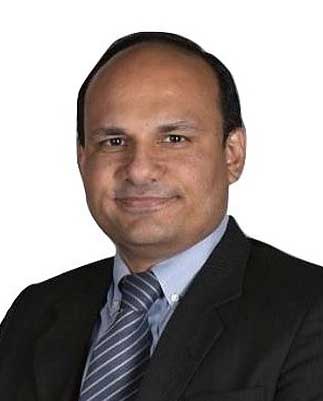The recent Pakistan-India conflict has sparked widespread concern, with tensions escalating between the two nations. The conflict has its roots in long-standing disputes, including the Kashmir issue, border skirmishes, and accusations of cross-border terrorism. The situation has been further exacerbated by recent incidents, including the Pahalgam attack, which has led to a significant increase in military activity and rhetoric from both sides. As the conflict continues to unfold, the economic implications are becoming increasingly apparent, with both countries facing significant costs and challenges.The economic costs of the conflict are substantial, with trade between the two countries severely impacted.
Pakistan’s exports to India have been disrupted, and the country’s economy is facing significant challenges due to the uncertainty surrounding the conflict. India is also facing economic losses, including disruptions to trade and investment, as well as increased military spending. The conflict is also having a negative impact on the region’s economic prospects, with investors becoming increasingly risk-averse and hesitant to invest in the region. As the conflict continues, it is likely that the economic costs will only escalate, further exacerbating the challenges faced by both countries. In this article, we will explore the economic costs of the conflict and the potential implications for both Pakistan and India.
During the whole war scenario it is a noticeable fact that, India’s influential elite have leveraged media outlets to shape public opinion and fuel nationalist sentiment amid heightened tensions with Pakistan. By exaggerating the situation and stoking nationalist sentiment, these powerful individuals aim to distract from the country’s pressing economic issues and reap personal benefits.
The Indian media, controlled by a handful of influential business groups that has been instrumental in amplifying the rhetoric, often prioritizing sensationalism over factual reporting. This orchestrated campaign not only misleads the public but also has far-reaching consequences for India’s economy and international reputation. The motivations behind this media blitz are complex and multifaceted. Indian oligopolats are driven by a desire to protect their cartels and maintain their stronghold on the Indian market, particularly in light of the Trump administration’s new tariff policies, which have piqued the interest of several large brands looking to tap into India’s cheap labor and burgeoning consumer base. However, the oligopolats are wary of these new entrants, who could potentially disrupt their dominance and erode their profit margins. By creating a climate of fear and uncertainty, the oligopolats aim to deter these brands from entering the Indian market, thereby safeguarding their own interests and prioritizing their profits and market control.
Moreover, this diversion from economic woes enables the government to sidestep pressing issues like unemployment, inflation, and stagnant growth. Furthermore, the oligopolats are leveraging their influence to shape government policies and regulations in their favor, further entrenching their market position. This concentration of economic power in the hands of a few individuals is detrimental to the overall health of the Indian economy, stifling competition and innovation. Consequently, the Indian economy is likely to suffer from reduced economic mobility, increased income inequality, and decreased economic opportunities for small businesses and entrepreneurs, ultimately hindering the country’s economic progress that’s why operation Sindoor has put immense pressure on India’s economy, with estimated losses projected to reach $30-40 billion in the short term and over $100 billion in a prolonged conflict. India’s economy, already grappling with a slowdown in growth and rising unemployment, is likely to suffer significantly.
The operation has triggered a decline in investor confidence, resulting in a sharp decline in the rupee’s value and increased inflationary pressures. This perfect storm of economic challenges will further exacerbate India’s economic woes, potentially leading to a decline in foreign direct investment, reduced consumer spending, and increased poverty levels. Furthermore, India’s manufacturing sector, a key driver of the country’s economic growth, is likely to be severely impacted, with potential disruptions to supply chains and a decline in exports.
In stark contrast, Operation Marka-e-Haq Bunyanum Marsoos has yielded positive economic outcomes for Pakistan, showcasing the country’s resilience and strategic planning in the face of conflict. With minimal economic disruption and a swift response to mitigate losses, Pakistan’s economy is expected to remain relatively stable, with a potential growth rate of 4-5%. The operation has also highlighted Pakistan’s attractiveness to foreign investors, with $10 billion in foreign investment and strategic partnerships bolstering the country’s economic stability and growth prospects.
Additionally, the Pakistan Stock Exchange (PSX) has experienced a significant boost, with investor confidence surging and the benchmark KSE-100 index witnessing a notable increase. This upswing in the stock market reflects the market’s positive response to Pakistan’s strategic handling of the conflict and its potential for economic growth. As a result, Pakistan is likely to emerge as a stable economic partner in the region, with increased investment opportunities and improved macroeconomic stability driving economic growth and development. Pakistan’s diplomatic efforts during and after the conflict have been truly exemplary, showcasing the country’s ability to navigate complex geopolitical situations with finesse and strategic acumen.
The country’s diplomatic corps has worked tirelessly to build and maintain international support, engaging in effective public diplomacy to convey Pakistan’s narrative to the global community. By leveraging various diplomatic channels and forums, Pakistan has successfully garnered international understanding and sympathy for its position, while also countering misinformation and propaganda. The role of media has been crucial in this regard, with Pakistani media outlets playing a significant role in shaping public opinion and presenting a balanced and nuanced view of the conflict.
Through effective media management, Pakistan has been able to convey its message to the world, highlighting its country’s strategic planning, military preparedness, and commitment to peace and stability. This effective diplomacy and media strategy have not only helped Pakistan to navigate the challenges of the conflict but have also enhanced the country’s reputation as a responsible and strategic player on the global stage. The enhanced reputation and international standing that Pakistan has gained as a result of its handling of the conflict present a significant opportunity for the country to cash in on this situation for the betterment of its economy. With its demonstrated resilience and strategic planning, Pakistan is well-positioned to attract increased foreign investment, improve its trade relationships, and access new markets and technologies.
The country’s diplomatic efforts have also opened up new avenues for cooperation and collaboration with other countries, which can help to drive economic growth and development. By leveraging its enhanced reputation and international standing, Pakistan can negotiate better trade deals, attract more foreign investment, and improve its economic prospects. This, in turn, can lead to increased economic activity, job creation, and improved living standards for the people of Pakistan.
As the conflict ends with a ceasefire, it is clear that Pakistan’s strategic planning and diplomatic efforts have yielded positive economic outcomes. With its economy expected to remain relatively stable, Pakistan is well-positioned to capitalize on its enhanced reputation and drive economic development. Furthermore, Pakistan’s enhanced reputation can also help to promote tourism, cultural exchange, and educational cooperation, further contributing to the country’s economic development. With India facing significant losses and reputational damage on the global stage, Pakistan has emerged with its head held high, poised to seize the opportunities arising from the conflict to drive economic development.
Pakistan must now take full advantage of this momentum, leveraging its enhanced reputation to secure new economic opportunities, strengthen its global partnerships, and drive sustainable development. By doing so, Pakistan can create a brighter economic future for its citizens and establish itself as a stable and prosperous nation. The country’s future looks promising, with potential for increased foreign investment, improved trade relationships, and a boost in economic activity, ultimately leading to improved living standards for the people of Pakistan.





